George Onoufriou
Premonition Net, A Multi-Timeline Transformer Network Architecture Towards Strawberry Tabletop Yield Forecasting
Nov 15, 2022



Abstract:Yield forecasting is a critical first step necessary for yield optimisation, with important consequences for the broader food supply chain, procurement, price-negotiation, logistics, and supply. However yield forecasting is notoriously difficult, and oft-inaccurate. Premonition Net is a multi-timeline, time sequence ingesting approach towards processing the past, the present, and premonitions of the future. We show how this structure combined with transformers attains critical yield forecasting proficiency towards improving food security, lowering prices, and reducing waste. We find data availability to be a continued difficulty however using our premonition network and our own collected data we attain yield forecasts 3 weeks ahead with a a testing set RMSE loss of ~0.08 across our latest season.
EDLaaS; Fully Homomorphic Encryption Over Neural Network Graphs
Oct 26, 2021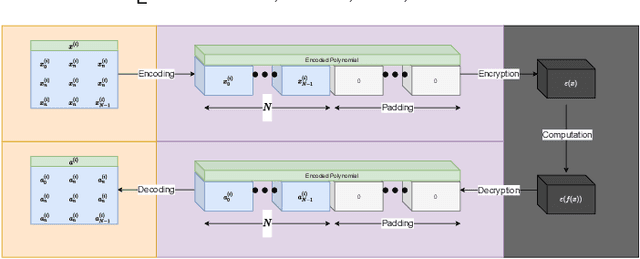

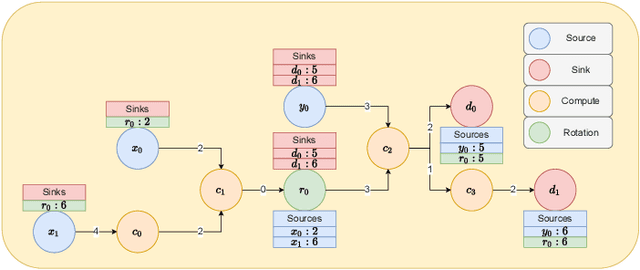
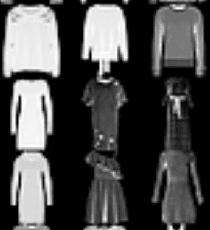
Abstract:We present automatically parameterised Fully Homomorphic Encryption (FHE), for encrypted neural network inference. We present and exemplify our inference over FHE compatible neural networks with our own open-source framework and reproducible step-by-step examples. We use the 4th generation Cheon, Kim, Kim and Song (CKKS) FHE scheme over fixed points provided by the Microsoft Simple Encrypted Arithmetic Library (MS-SEAL). We significantly enhance the usability and applicability of FHE in deep learning contexts, with a focus on the constituent graphs, traversal, and optimisation. We find that FHE is not a panacea for all privacy preserving machine learning (PPML) problems, and that certain limitations still remain, such as model training. However we also find that in certain contexts FHE is well suited for computing completely private predictions with neural networks. We focus on convolutional neural networks (CNNs), fashion-MNIST, and levelled FHE operations. The ability to privately compute sensitive problems more easily, while lowering the barriers to entry, can allow otherwise too-sensitive fields to begin advantaging themselves of performant third-party neural networks. Lastly we show encrypted deep learning, applied to a sensitive real world problem in agri-food, and how this can have a large positive impact on food-waste and encourage much-needed data sharing.
Fully Homomorphically Encrypted Deep Learning as a Service
Jul 26, 2021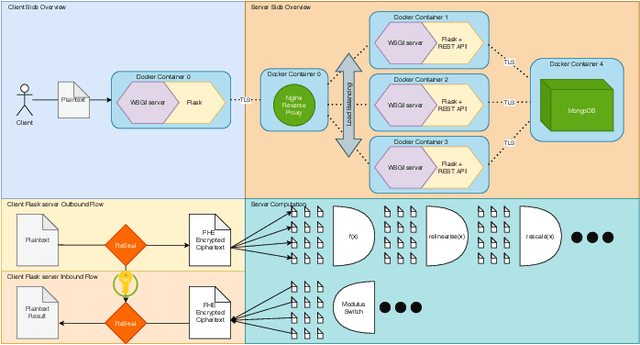
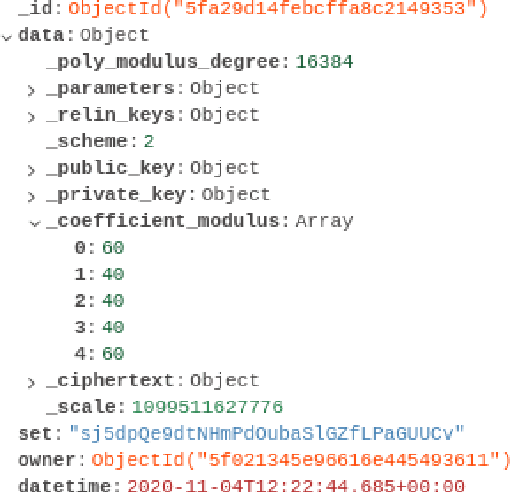

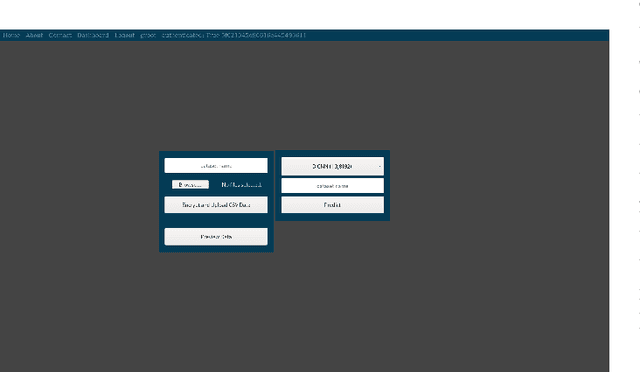
Abstract:Fully Homomorphic Encryption (FHE) is a relatively recent advancement in the field of privacy-preserving technologies. FHE allows for the arbitrary depth computation of both addition and multiplication, and thus the application of abelian/polynomial equations, like those found in deep learning algorithms. This project investigates, derives, and proves how FHE with deep learning can be used at scale, with relatively low time complexity, the problems that such a system incurs, and mitigations/solutions for such problems. In addition, we discuss how this could have an impact on the future of data privacy and how it can enable data sharing across various actors in the agri-food supply chain, hence allowing the development of machine learning-based systems. Finally, we find that although FHE incurs a high spatial complexity cost, the time complexity is within expected reasonable bounds, while allowing for absolutely private predictions to be made, in our case for milk yield prediction.
Nemesyst: A Hybrid Parallelism Deep Learning-Based Framework Applied for Internet of Things Enabled Food Retailing Refrigeration Systems
Jun 04, 2019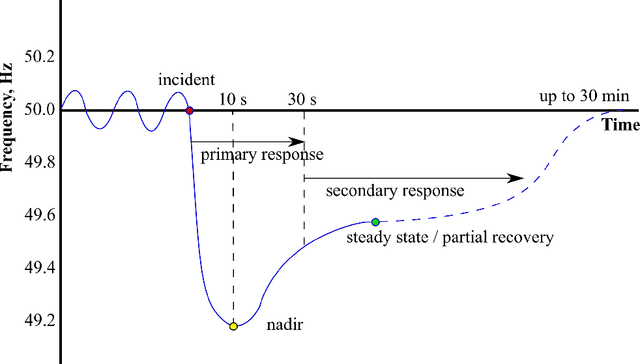

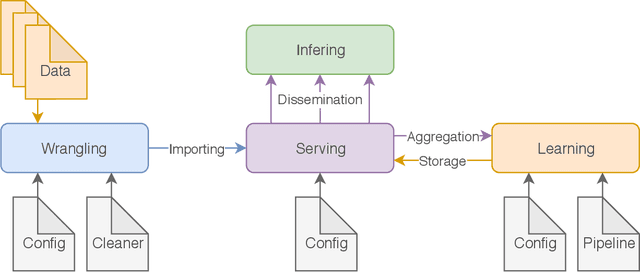
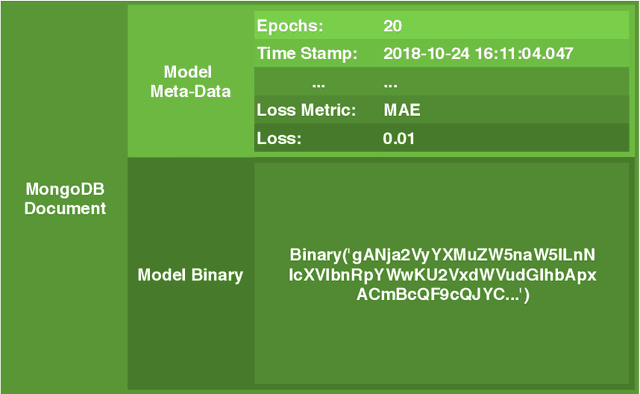
Abstract:Deep Learning has attracted considerable attention across multiple application domains, including computer vision, signal processing and natural language processing. Although quite a few single node deep learning frameworks exist, such as tensorflow, pytorch and keras, we still lack a complete processing structure that can accommodate large scale data processing, version control, and deployment, all while staying agnostic of any specific single node framework. To bridge this gap, this paper proposes a new, higher level framework, i.e. Nemesyst, which uses databases along with model sequentialisation to allow processes to be fed unique and transformed data at the point of need. This facilitates near real-time application and makes models available for further training or use at any node that has access to the database simultaneously. Nemesyst is well suited as an application framework for internet of things aggregated control systems, deploying deep learning techniques to optimise individual machines in massive networks. To demonstrate this framework, we adopted a case study in a novel domain; deploying deep learning to optimise the high speed control of electrical power consumed by a massive internet of things network of retail refrigeration systems in proportion to load available on the UK National Grid (a demand side response). The case study demonstrated for the first time in such a setting how deep learning models, such as Recurrent Neural Networks (vanilla and Long-Short-Term Memory) and Generative Adversarial Networks paired with Nemesyst, achieve compelling performance, whilst still being malleable to future adjustments as both the data and requirements inevitably change over time.
 Add to Chrome
Add to Chrome Add to Firefox
Add to Firefox Add to Edge
Add to Edge